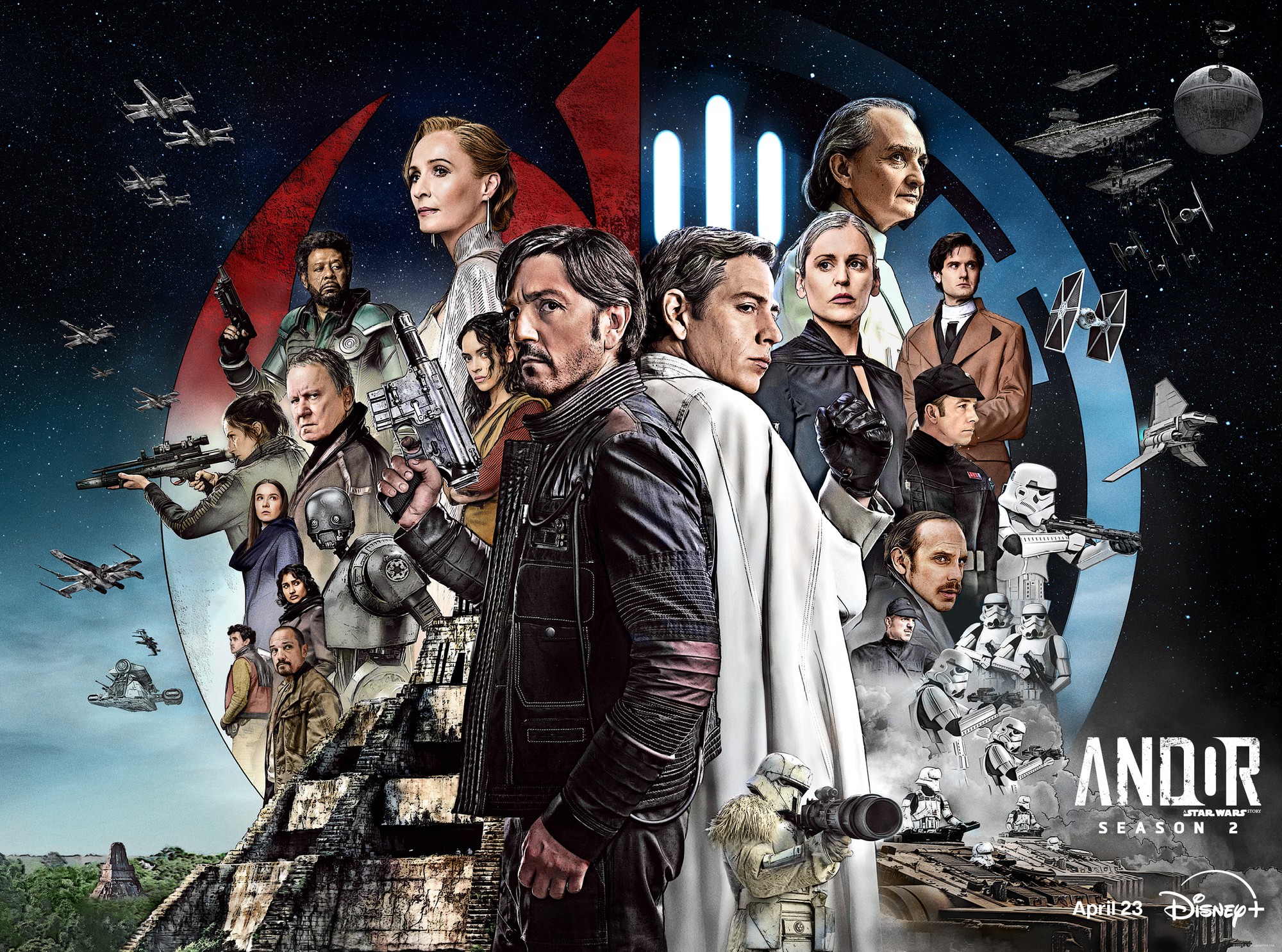The Disney+ acclaimed series “Andor” pushed the swashbuckling space opera of white knights and dark sorcerers into the gray by exploring the complexities that come with political espionage and inciting a galaxy-wide uprising. This more mature and expertly written deconstruction of the traditionally heroic rebellion is what made “Andor” season one so riveting – as it brought a compelling new edge to a franchise that was, at the time, too reliant on lackluster fan service and appealing to too young of an audience. In spite of this “adult edge” being a defining element of the series, there is sometimes too much of a good thing.
In “Andor” season two, episode three, “Harvest,” Bix Caleen (Adria Arjona) and her friends are squatting as illegal immigrants while hiding from The Empire. However, when Imperial forces come to sweep the planet and remove everyone without documentation, the Imperial Officer, Lieutenant Krole (Alex Waldmann), gives Caleen an ultimatum. In light of her refusal, Krole tries to take what he wants and forces himself upon Caleen. The graphic confrontation ends with Krole dead and Caleen uttering the words, “He tried to rape me.”
A sexual assault scene in any medium is meant to push the viewer past the point of comfortability, but coming from the galaxy far far away, it felt entirely alien to the franchise in a negative way. This isn’t to say “Star Wars” should not address grown-up themes, however. While “Andor” is touted as “Star Wars for adults,” fans should not forget that mature commentary has always permeated this universe. Dating back to the Original Trilogy’s inception, this franchise has always been a reflection of the modern day. George Lucas cites the Vietnam War – a powerful empire defeated by a rag-tag group of fighters – as a major influence for the story behind Episodes IV through VI. Even the Ewoks, as childish as they are, are an allegory for the Vietnamese.
Jumping to the Prequel and Clone Wars Eras, these projects are even more so rooted in mature narrative aspects. Not only do Episodes II and III highlight the slaughtering of innocent Tusken Raiders and younglings as a significant part of Anakin Skywalker’s turn to the dark side, but they are a reflection upon the “death of democracy” present during George W. Bush’s War on Terror. The morality of this political controversy becomes the backbone of the latter season of “Star Wars: The Clone Wars” once the previously nobel Republic resorts to committing war crimes amidst the never-ending galactic conflict.
When it comes to incorporating dark and more “grown-up” stories in the galaxy far far away, it is often met with praise from the fans – look no further than “The Empire Strikes Back” as many consider it to be the not only the best “Star Wars” movie of all time but one of the best movies ever made. That said, in instances such as “The Empire Strikes Back,” “Revenge of the Sith” or “Clone Wars,” it uses these mature elements to thematically enrich the narrative potential. However, the introduction of rape into the franchise does nothing to advance the story of “Andor” in a compelling way — it feels as if it purely exists as “violent pornography.”
Credit where credit is due, the in-universe reasons behind the controversial sequence is a fascinating concept to explore. In a galaxy where most of the primary characters are poor farmers, smugglers or scavengers who can easily hop a star tour to a nearby planet, migrant workers would be a common occurrence. Additionally, passports, hyperspace lanes and landing permits are all regulated by The Empire. As such, this would result in tons of galaxy-wide illegal immigrants. So for “Andor” to use the sci-fi medium to comment on the very real-world complexities of this issue, it thematically enriches the “Star Wars” mythos.
As for the moment itself, Krole assaulting Caleen does not make this same case. Their scene does not exist as a commentary on the issue of sexual assault, it merely exists for the sake of its own inclusion – as if to prove how “adult” this show is. While this is a realistic scenario, this is the same franchise where bacteria give people telekinesis, not everything has to be realistic. For many, “Star Wars” has been an escape from reality where the good guys do win and their favorite characters get that happy ending. While real-world complexities infuse the hero’s journey with adversity, it never comes at the cost of that escapism.
In the end, that is why the rape scene in “Harvest” feels alien in a franchise built upon socio-political commentary because of how it violates what “Star Wars” has always stood for – an escapist world where the biggest fantastical element is that in spite of the real world issues, the good guys always win.
—
Featured Image via Disney+

